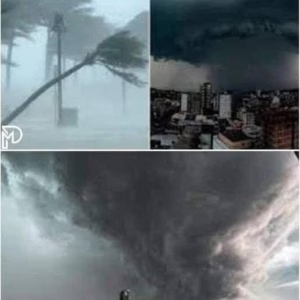On Monday, Iran launched a minimum of six missiles targeting U.S. military installations in Qatar as a reaction to American airstrikes on three of its critical nuclear sites. Explosions were reported in Doha; however, there were no immediate reports of injuries. This incident represents Iran’s most significant direct attack on U.S. interests since the missile strikes in 2020 that occurred after the assassination of Iranian General Qasem Soleimani. The U.S. Embassy in Qatar quickly issued a ‘shelter in place’ advisory for American citizens in the vicinity, highlighting an increased security alert. Concurrently, the U.S. State Department urged Americans worldwide to stay alert in light of escalating tensions.
The missile attack indicates a significant escalation in hostilities between Iran and the United States, with broader implications considering the ongoing conflicts between Israel and Iran. According to Fox News, U.S. intelligence officials anticipate the likelihood of further Iranian retaliation within the next 48 hours. Already, regional travel and airspace have been affected as precautionary measures are implemented. The rapid nature of Iran’s response underscores the growing instability in the region and the increasing challenges in achieving a diplomatic resolution.
President Donald Trump authorized the initial U.S. strikes on Iran’s nuclear facilities, which include Natanz, Isfahan, and Fordo, without seeking congressional approval. He defended this action on the basis of national security. Republican leaders in Congress have predominantly supported Trump’s decision, contending that preemptive measures were essential to thwart Iran’s nuclear weapons development. They assert that the strikes were defensive and proportionate, particularly in light of Iran’s history of hostile actions against the U.S. and its allies.
House Speaker Mike Johnson defended Trump’s decision, asserting that the president acted within his legal authority due to the urgency of the threat. Notable Republican senators, such as John Thune, John Barrasso, and Tom Cotton, also released statements endorsing the operation. They referenced Iran’s history of aggression and its disregard for diplomatic efforts as justification for the targeted strikes. These lawmakers argue that halting Iran’s nuclear progress is crucial for preserving both regional and global security.
Despite the serious nature of the confrontation, U.S. officials have clarified that these actions do not indicate a formal state of war between the two nations. Both the Biden and Trump administrations have asserted that the strikes were specifically aimed at nuclear deterrence and were not meant to instigate a full-scale conflict. Nevertheless, the repercussions of these actions—both militarily and diplomatically—remain uncertain, with the possibility of further escalation on the horizon.
WATCH:




